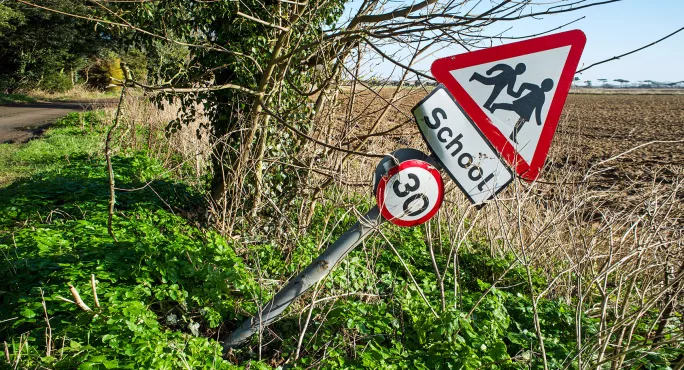Ofsted: 70% of ‘requires improvement’ schools moved up

More than two-thirds of schools that were previously rated as “requires improvement” (RI) by Ofsted have improved to “good” or “outstanding” in graded inspections this year, meaning they will avoid a new government threshold for intervention.
Analysis published by the watchdog today shows that a higher proportion of the RI-rated schools inspected in 2021-22 have improved than in 2019-20, when routine inspections were last carried out.
In the current academic year, 70 per cent of schools previously rated as RI have improved in graded section five inspections, compared with 56 per cent in 2019-20, when Ofsted first started inspecting under its current framework.
The significance of schools getting consecutive RI judgements is set to increase as the government is making this a threshold for intervening and seeking academy orders - although it will not do this automatically.
Ofsted said that it has carried out nearly 600 graded inspections of schools that had RI judgements in 2021-22.
A higher proportion of primary schools than secondary schools improved (71 per cent compared with 68 per cent).
However, the biggest increase was for secondary schools, with an increase of 26 percentage points, from 42 per cent improving in 2019-20.
Because Ofsted paused most inspections in March 2020, during the Covid crisis, the length of time between graded inspections of schools that previously “requires improvement” has increased.
Ofsted’s new data shows the gap between inspections has risen from 2.6 years in 2019-20 to four years in 2021-22.
Most of the schools inspected in 2021-22 had last been inspected between three and four years ago.
- ‘Requires improvement’: DfE pushing ahead with plan to intervene at schools twice rated less than ‘good’
- Background: DfE plans to move coasting schools into MATs
- Inspection: GCSE and Sats results from this summer will feed into Ofsted inspection
Ofsted’s analysis also shows that, on average, academies had longer gaps between inspections than schools maintained by the local authority (4.3 compared with 3.8 years).
The watchdog said this is because new academies are usually inspected in their third year as a new academy. The last inspection of the predecessor school may also have taken place some time before the school became an academy.
The data published by the inspectorate today also shows a regional variation in the outcomes for schools previously rated as RI.
In London, 85 per cent of the 33 RI schools had graded inspections improved to “good” or better, while, at the other end of the scale, in the West Midlands, 62 per cent of the 79 RI schools improved.
Overall, of the 599 graded inspections of RI schools carried out in 2021-22, 419 improved to “good” or “outstanding”, 157 received another RI judgement and 23 were downgraded to “inadequate”.
The government is bringing in new powers to intervene when schools receive consecutive “requires improvement” judgements.
This means it could issue an academy order for a maintained school or re-broker an academy into a different academy trust.
Documents published last month showed that Ofsted has raised concerns about the Department for Education’s plans and highlighted that some schools with consecutive “requires improvement” judgements may be improving and under strong leadership.
The inspectorate told the DfE that intervening in these circumstances could be “unnecessary and possibly damaging”.
The DfE said it was going ahead with its plans, which are expected to come into force from September.
It will apply to schools whose most recent inspection is after May 2021 and the DfE said it would initially be focused on schools in the government’s 55 designated Education Investment Areas.
You need a Tes subscription to read this article
Subscribe now to read this article and get other subscriber-only content:
- Unlimited access to all Tes magazine content
- Exclusive subscriber-only stories
- Award-winning email newsletters
Already a subscriber? Log in
You need a subscription to read this article
Subscribe now to read this article and get other subscriber-only content, including:
- Unlimited access to all Tes magazine content
- Exclusive subscriber-only stories
- Award-winning email newsletters
topics in this article



